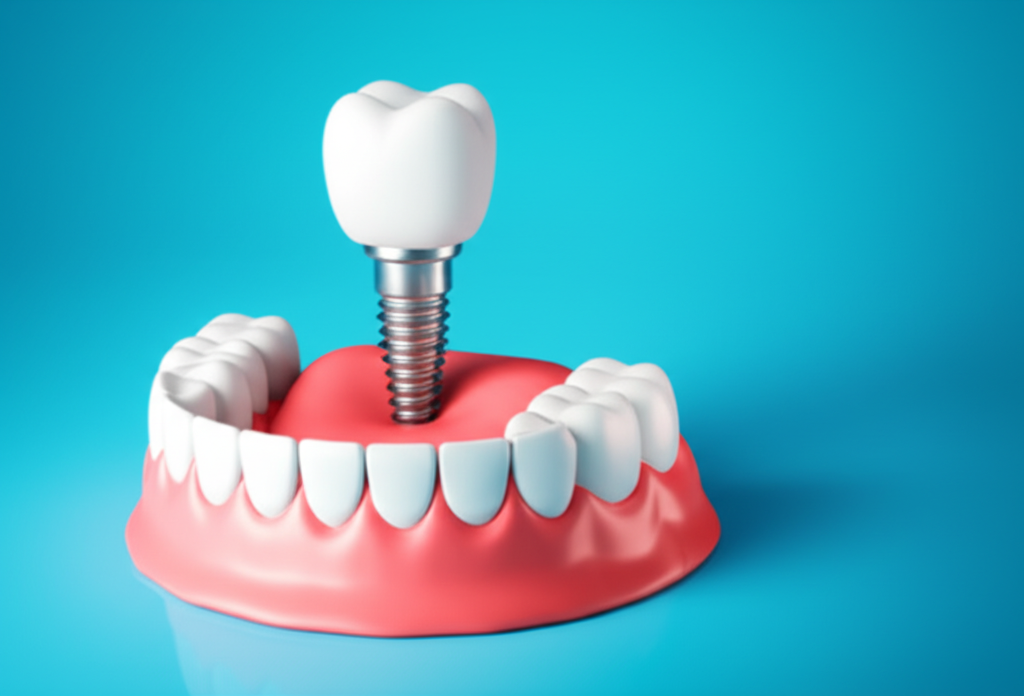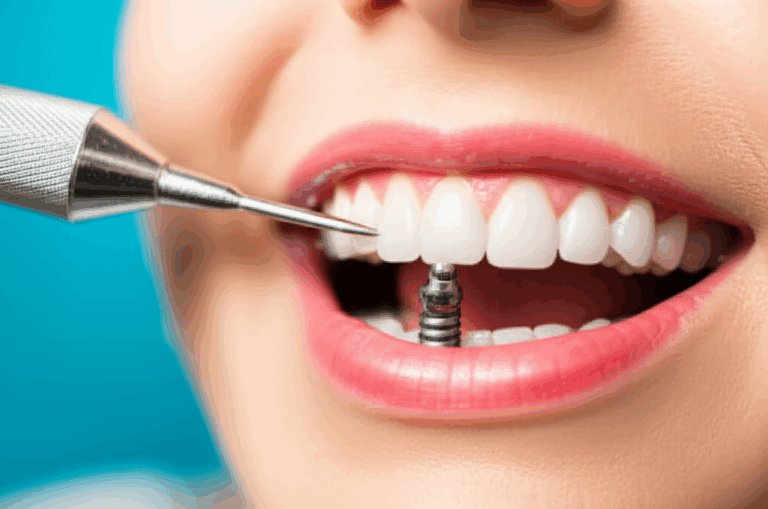
What Percent of Dental Implants Fail? Your Complete Guide to Implant Success and Risk
That moment you take a bite of your favorite food, flash a confident smile, or just go about your everyday routine, you probably don’t want to worry about your dental implants. Yet, if you’ve been thinking about getting implants or already have them, you’ve probably wondered: What percent of dental implants fail? Should I be worried about it?
Take a breath—you’re not the only one with this worry. Dental implant failure is a real concern for many people making choices about their teeth. You’re smart to ask questions. Let’s go through the facts, bust some myths, and help you know what’s really going on, so you can make a calm and confident choice.
In This Article
- What is the Dental Implant Failure Rate?
- Why Do Dental Implants Fail?
- Who’s at Risk? Patient Factors That Affect Success
- How to Spot a Problem: Signs of Implant Trouble
- What Happens If a Dental Implant Fails?
- Tips for Keeping Your Implants Healthy
- Are Dental Implants Right for You?
- Healthy Takeaway: Your Next Steps
What is the Dental Implant Failure Rate?
Let’s start with the straight answer. Dental implants work well about 95-98% of the time. That means they fail only 2-5% over 10 to 15 years based on what most dental studies say.
If you lined up 100 people who got dental implants, about 95 to 98 will still have strong, healthy implants ten years later. Only 2 to 5 might have big problems that make their implants not work.
That’s pretty amazing. For most people, dental implants are a sure and long-lasting fix—usually going strong for twenty years or even longer. Those are very good odds for something used to replace teeth.
But—there’s always a “but”—no surgery is 100% certain. Some health problems or habits can make your own odds a bit better or worse.
How Do Dentists Define “Success” and “Failure”?
Sometimes, “failure” means the implant never connects with your jawbone at the start (that’s called early failure). Other times, your implant might be fine for years, but then gum problems or bone loss makes it loose or painful (that’s late failure). In both cases, the implant doesn’t work and might need to come out.
Success means your implant stays solid, doesn’t get infected or hurt, and lets you chew and smile normally for years.
Numbers in Short:
- Overall Success: 95-98% (10-15+ years)
- Early Failure (first 3-6 months): 1-3%
- Late Failure (over time): 1-2%
Let’s look at why these numbers aren’t 100%.
Why Do Dental Implants Fail?
Think of your dental implant like a tiny metal post, usually made from titanium, set deep in your jawbone. It’s like making a strong base for a building—you want everything to be steady, clean, and held up from the very start.
But what if something goes wrong?
Early Implant Failure (The First Few Months)
Most real failures show up soon, when your mouth is still healing. If your body doesn’t take in the new implant, you’ll know pretty soon. Here’s what might mess things up:
- Osseointegration Problems: This just means your bone doesn’t grow tight around the implant. If the bone doesn’t wrap around it, the implant is loose, like a fence post in soft dirt.
- Infection: Germs in the surgery spot can stop proper healing and make the bone break down before the implant settles in.
- Bad Surgical Technique: Even if the parts are good, if the dentist does a bad job or is too rough, things won’t go well.
- Not Enough Bone: If the jawbone is too thin or weak, it’s like trying to put a heavy shelf in soft drywall.
- Too Much Force: If you chew hard or mess with the implant before it’s healed, that causes problems.
Late Implant Failure (Months or Years Later)
Say your implant healed just fine. Can things still go wrong? Sadly, yes.
- Peri-implantitis: This is like gum disease, but around your implant. It causes bone loss and sore gums.
- Bruxism/Clenching: If you grind or clench your teeth, especially at night, it can slowly loosen your implant.
- Accident: A hit to your mouth—a fall or a sports injury—could hurt an implant that was just fine before.
- Bone Wearing Away: Bone can shrink slowly over years, either from poor care or just how your body changes.
Rare Causes
Once in a blue moon, your body might “reject” the implant — like an allergy or immune reaction — but this is very rare with today’s titanium or zirconia implants.
Big factors:
- Clean surgery
- Good healing and healthy bone
- Keeping your mouth clean every day
Who’s at Risk? Patient Factors That Affect Success
Not everyone has the same risk. Some personal habits or health problems can make dental implants more likely to fail.
General Health
- Diabetes That’s Not Controlled
High blood sugar makes you get infections easier and slows down healing. But if you control your diabetes, your risks are almost the same as anyone else.
- Immune Problems
- Diseases like lupus or some medicines that lower your immune system can make healing harder.
- Certain Medications
- Long-term steroids or some medicines for weak bones (like bisphosphonates) may weaken your jaw.
- Osteoporosis
- Thin bones don’t hold implants well.
- Radiation or Cancer Treatments
- Getting radiation for head or neck cancer can make healing tougher.
Habits
Smoking:
Here’s the hard truth: Smokers are 2 to 4 times more likely to have dental implant problems. Smoking makes blood vessels smaller, which means less oxygen for your healing gums and bone. Even with perfect care, a smoker might see a failure rate as high as 6–20%.
Not Brushing and Flossing:
Implants need cleaning just like your real teeth. Not brushing leads to “peri-implantitis”—an infection that can eat away at the bone around your implant.
Drinking Too Much Alcohol:
Heavy drinking hurts your immune system and slows healing.
Grinding or Clenching Teeth:
Pushing or grinding on the implant all the time can loosen it, like wiggling a stick until the dirt around it gets loose.
Mouth Health
- Untreated Gum Disease:
If you had gum problems before, take care—those germs can get into the implant area.
- Jawbone That’s Too Thin or Weak:
Not enough bone? Bone grafting (adding bone before or during surgery) might be needed.
- Unhealthy Gums:
Healthy gums are important for keeping germs out and holding the implant in place.
How to Spot a Problem: Signs of Implant Trouble
Worried something’s not right with your dental implant? Knowing the signs early pays off. Catching trouble early can save your implant—or at least stop a small problem from turning big.
Watch Out For:
- Lasting Pain or Soreness:
A little soreness is normal after surgery, but sharp or continuing pain isn’t.
- Swelling or Red Gums:
Your gums should be pink and healthy, not puffy or red.
- Bleeding or Pus:
Bleeding after healing, or any pus, usually means infection.
- A Wiggly Implant:
A solid, unmoving implant is what you want. If it moves, call your dentist.
- Gums Pulling Away:
If your gums look like they’re sliding back from the implant, pay attention.
- Chewing Hurts:
If eating feels weird or hurts, don’t ignore it.
Tip: Implants don’t have nerves, so pain is actually coming from your gums or bone, not the implant itself. Always better to call your dentist if you’re not sure.
If you’re still worried, check out some common dental problems people have with implants.
What Happens If a Dental Implant Fails?
The big question: If my implant fails, will I have a gap forever?
Don’t worry. Dentists know how to handle this, and you usually have choices.
What Happens Step by Step
- The sooner you get help, the better.
- X-rays and exams will help your dentist see if the problem is infection, bone loss, a broken piece, or something else.
- Small Problems: Sometimes a cleaning and some medicine can fix an early infection.
- Big Problems: If the bone is too lost or the implant is loose, it might need to come out.
- You may need to let the spot heal for a while, maybe with bone added back in.
- Try Again: After healing, many people can get a new implant put in.
- Other Choices: Sometimes your dentist will suggest something else, like a denture or a bridge.
A failed implant doesn’t mean you’re out of luck—it’s just a bump in the road.
Tips for Keeping Your Implants Healthy
So what can you do to make success even more likely?
Pick the Right Dental Team
- Choose a Skilled Dentist or Surgeon:
Success is best when someone with lots of training and experience does your surgery. Check their credentials and see how many implants they’ve done.
Some good providers work with a digital dental lab to make sure your replacement teeth fit perfectly.
Get a Full Checkup First
- Careful Planning:
X-rays and sometimes 3D scans are used to see if your bone is ready and to put the implant in the best spot. In some cases, a china dental lab can make a custom guide to help during surgery.
Good Brushing and Flossing
- Brush and Floss Every Day:
Germs will attack implants too, not just your real teeth.
- Go to the Dentist Regularly:
Get cleanings and checkups.
Drop Unhealthy Habits
- Quit Smoking:
Even quitting for a while before and after surgery helps a lot.
- Drink Less Alcohol:
Less drinking helps your body heal.
Take Care of Health Issues
- Work With Your Doctor:
Keep diabetes or any other long-term health problems steady before your new implant.
Protect Your Implant
If you grind your teeth (or if your dentist says so), a custom night guard from a night guard dental lab can help protect your implant.
Follow All Your Dentist’s Instructions
Every case is a little different. Your dentist will give you healing instructions—stick to them. A little care now means a lot of healthy years with your new smile.
Are Dental Implants Right for You?
Dental implants are one of the best and longest-lasting ways to fix missing teeth. But you want to be sure they fit your needs.
Best Candidates For Implants
- Strong Jawbone:
You have enough bone in your jaw, or you’re okay with adding bone if you need it.
- Healthy Gums:
No untreated gum disease.
- Chronic Problems Are Under Control:
Diabetes or immune problems are managed with your doctors’ help.
- No Smoking (or Willing to Stop):
Stopping smoking is a must for best results.
- Ready to Brush, Floss, and See Your Dentist Regularly:
You’re willing to care for your teeth each day.
- Know What To Expect:
Even the best dental work needs a little repair or checking now and then.
Implants May Not Be Right If…
- You’re having chemo or radiation in your head/neck.
- Diabetes is not under control or you have bleeding problems.
- You grind your teeth and won’t treat it.
- You won’t or can’t keep up with brushing, flossing, and seeing the dentist.
Being honest matters. Not everyone is a perfect fit right away, but with some work (like adding bone, treating gum disease, or stopping smoking), many people can get ready for implants.
Not sure where you fit? You might want to look at different dental implant options to help decide.
Healthy Takeaway: Your Next Steps
Let’s sum it up in plain words:
Key Points:
- Dental implants work well about 95-98% of the time over 10+ years. Most people never have big problems.
- Failures (2-5%) are usually because of health issues, smoking, weak bone, or gum trouble—but you can usually do something about these.
- Spotting problems early helps. If something feels wrong, see your dentist right away.
- You can lower many risks: Don’t smoke, clean your teeth well, see your dentist for checkups, and manage health issues.
- If an implant fails, it doesn’t mean you have no hope—dentists have ways to fix things.
- Picking a good dentist—maybe one who works with an advanced implant dental laboratory—is one of the best ways to take care of your investment.
What’s Next:
Ask questions. Chat with your dentist about your risks and goals. No question is silly. Take your time and get a full checkup before you decide.
Whether you’re missing one tooth or more, implants can really change your life—helping you eat, talk, and smile with real confidence.
The best results come when you and your dentist work together. Your effort and their skill—that’s how you get a smile that lasts!
Frequently Asked Questions (FAQs)
How long do dental implants last?
With good care, implants can last 10-15 years or even a lifetime.
Can a failed implant be replaced?
Most of the time, yes—after healing, sometimes with a little bone added.
Does insurance pay for failed implants or repairs?
It depends on your plan. Ask your dentist or insurance company.
Do upper or lower jaw implants fail more?
Implants in the lower jaw usually last a bit longer since the bone is thicker.
What is the biggest thing I can do to avoid failure?
Quit smoking and clean your teeth really well—these matter most.
More Resources
Want to learn more about fixing dental problems or your choices? Have a look at our articles on dental problems or see how a digital dental lab can help make sure everything fits perfectly.
Remember, knowing what’s going on is the first step to a healthy, happy smile. Whatever you choose, find a team that listens and cares. Here’s to your best and brightest smile yet!








